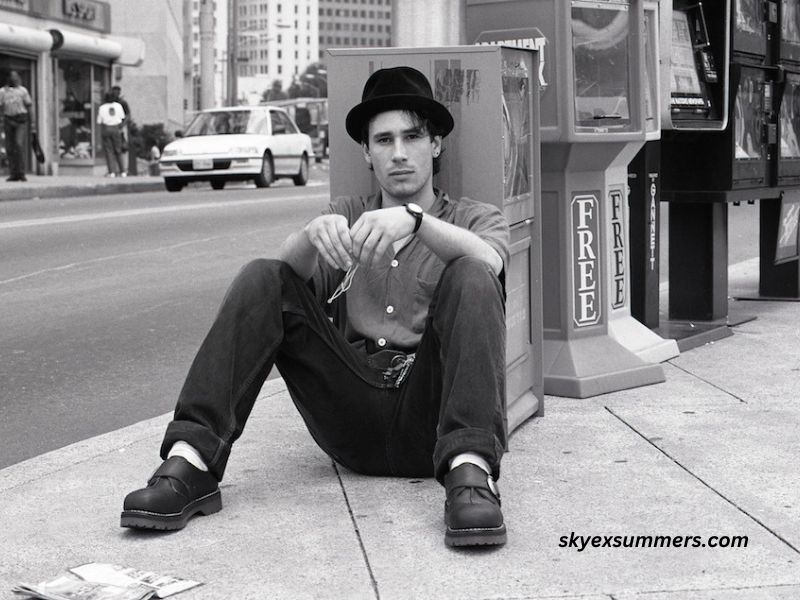Jeff Buckley, an enigmatic and supremely talented musician, is remembered as one of the most influential artists of the 1990s. Known for his haunting voice, impeccable songwriting, and the profound emotional depth he brought to his music, Buckley left an indelible mark on the music world. However, his life and career were tragically cut short. In this article, we explore the circumstances surrounding Jeff Buckley’s death, the legacy he left behind, and how the music industry continues to celebrate his work.
The Rise of Jeff Buckley
Before delving into the details of how Jeff Buckley died, it’s crucial to understand his meteoric rise in the music industry. Born on November 17, 1966, in Anaheim, California, Buckley was the son of folk singer Tim Buckley and Mary Guibert. Despite his father’s influence, Jeff had limited contact with him, as Tim passed away when Jeff was just eight years old.
Jeff Buckley’s talent became apparent early on. After years of honing his skills as a guitarist and vocalist, he gained attention performing in New York City’s East Village. His 1994 debut album, Grace, is now regarded as a masterpiece. Featuring iconic tracks like “Hallelujah” (a Leonard Cohen cover that Buckley made his own), the album showcased his ethereal voice and unparalleled musicality. Although Grace received moderate commercial success during its release, its acclaim grew exponentially in the years following his death.
The Events Leading to Jeff Buckley’s Death
On the evening of May 29, 1997, Jeff Buckley disappeared under circumstances that have since been shrouded in mystery and speculation. At the time, Buckley was in Memphis, Tennessee, where he had been work ing on material for his much-anticipated second album. He was accompanied by his roadie, Keith Foti.
The Mississippi River Swim
On the fateful evening, Buckley and Foti were on their way to a local studio when they stopped near the Wolf River Harbor, a slackwater channel of the Mississippi River. As they waited for the rest of the band to arrive, Buckley decided to go for a swim in the harbor—a seemingly innocent choice that turned fatal.
According to reports, Buckley was fully clothed when he entered the water, wearing boots and all. Witnesses, including Foti, described how Buckley swam out into the water singing Led Zeppelin’s “Whole Lotta Love.” However, as a boat passed by, its wake caused turbulence in the water. Foti, distracted for a moment while adjusting their equipment on the shore, turned back only to find Buckley gone.
The Search and Discovery
After Buckley disappeared, an extensive search ensued. Friends, family, and fans clung to hope, praying for his safe return. Tragically, those hopes were dashed when his body was discovered on June 4, 1997, by a passenger on a riverboat.
The autopsy revealed no signs of foul play or drugs in his system. Buckley’s death was officially ruled an accidental drowning, attributed to the strong currents and his decision to swim fully clothed.
Speculation and Myths
Although the official ruling was accidental drowning, many theories and myths have arisen around Jeff Buckley’s death. Some fans speculated that it was a deliberate act, while others questioned why someone as cautious as Buckley would choose to swim in such conditions. However, his mother, Mary Guibert, and those close to him have always maintained that Jeff had no intention of harming himself. They described him as being in good spirits, excited about his new music, and looking forward to his career.
Jeff Buckley’s State of Mind
In the months leading up to his death, Buckley reportedly felt the pressure of living up to the success of Grace. However, friends and collaborators noted that he remained passionate about his work and was eager to share his new material with the world. Interviews with those close to him reveal that he was upbeat and full of creative energy, dispelling the notion that his death might have been intentional.
Jeff Buckley’s Legacy
Jeff Buckley’s untimely death at the age of 30 was a devastating loss to the music world. However, his influence has only grown in the years since his passing. Artists across genres, from Radiohead to Adele, have cited him as a key inspiration. His rendition of “Hallelujah” remains one of the most celebrated interpretations of the song, touching millions of listeners with its raw beauty.
Posthumous Releases
After Buckley’s death, his record label and family worked to compile and release unfinished works. Albums such as Sketches for My Sweetheart the Drunk (1998) offered fans a glimpse into the direction he was headed musically. These releases, though incomplete, solidified his reputation as a groundbreaking artist.
Remembering Jeff Buckley
Every year, fans around the world commemorate the anniversary of Jeff Buckley’s death. Memorials, tribute concerts, and social media campaigns celebrate his life and contributions to music. His story resonates not only because of his talent but also because of the profound sense of loss that accompanies the “what could have been” questions surrounding his career.
Influence on Future Generations
Buckley’s work continues to inspire new generations of musicians. His vulnerability, artistic integrity, and willingness to push musical boundaries serve as a model for aspiring artists.
Conclusion
The question of how Jeff Buckley died has haunted fans for decades, but the tragic circumstances of his passing are only part of his story. While his death was a devastating loss, his music ensures that his legacy lives on. Jeff Buckley’s brief but brilliant career reminds us of the fragility of life and the enduring power of art.
As fans continue to revisit his music, they find solace in the timeless beauty of his work, keeping his spirit alive in the melodies and lyrics that captured the essence of his soul. Jeff Buckley may have left this world far too soon, but his voice and artistry remain eternal.



